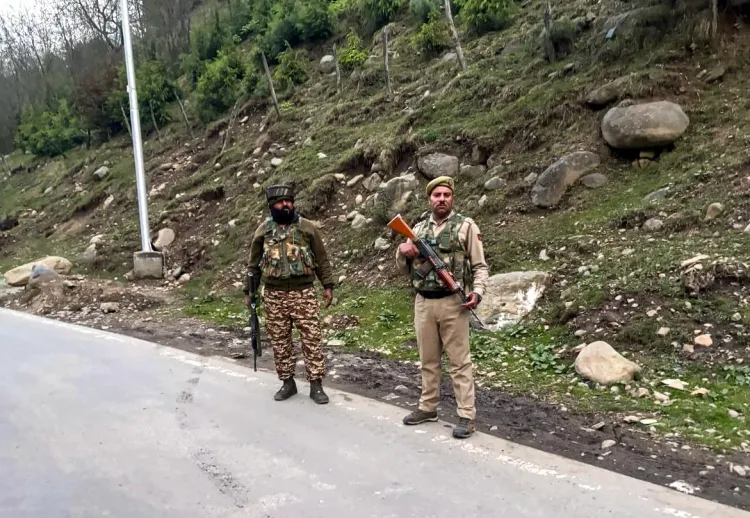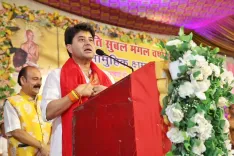Will the SC Address Security for Tourists in Pahalgam?

Synopsis
Key Takeaways
- Supreme Court to hear PIL on tourist safety.
- Calls for improved security in remote areas.
- Terror attacks raise concerns over tourist vulnerabilities.
- Governments urged to enhance protection measures.
- Importance of addressing safety for all visitors.
New Delhi, May 4 (NationPress) The Supreme Court is set to convene on Monday to examine a Public Interest Litigation (PIL) that demands improved safety measures for tourists in mountainous and remote regions. This legal action comes in the wake of the tragic April 22 terror attack in Pahalgam, Jammu & Kashmir (J&K), which resulted in the deaths of 26 civilians, comprising 25 tourists and a local resident.
According to the court’s published schedule, a panel of Justices Surya Kant and N.K. Singh will deliberate on this matter on May 5.
The petition highlights a significant lack of safety protocols and guidelines for tourists and the general public, particularly regarding responses to terrorist threats, accessing immediate assistance, and finding shelter during attacks.
Moreover, it emphasized that tourists in Pahalgam are vulnerable targets for terrorists, as they are often unarmed and lack any protective measures.
The plea pointed out that this is the first instance where tourists have been specifically targeted in such high numbers, raising serious concerns about the safety and security of visiting individuals in the country, particularly in regions like Jammu and Kashmir.
Further, it stated that recent terrorist actions have cast doubt on the security of tourists in remote areas, where the lack of regular police presence makes these locations easier targets compared to urban settings.
The PIL urges both the Central and State governments to implement sufficient security arrangements for tourists visiting these remote mountainous areas, especially during peak seasons.
It also noted the disparity in security measures, stating that VIPs receive constant protection while ordinary citizens are left vulnerable.
On Thursday, the apex court rejected a plea for establishing an investigative panel led by a retired judge to probe the Pahalgam incident.
The Justice Surya Kant-led Bench criticized the petitioner for potentially undermining the morale of the armed forces, stating, "Be cautious when filing such a PIL. It is inappropriate to assume retired judges possess investigative expertise. Our role is to settle disputes, not conduct investigations."
The court emphasized the current collective effort of all citizens to combat terrorism and dismissed any requests that could demoralize the forces involved in this fight.





